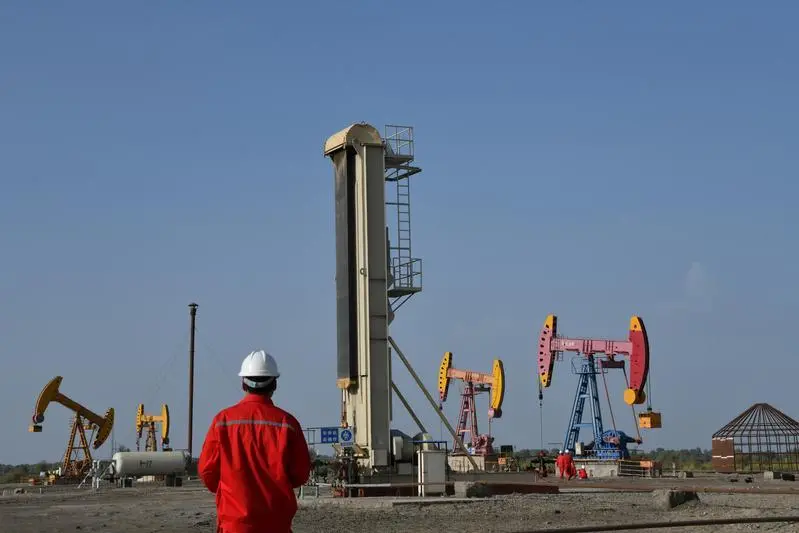PHOTO
SINGAPORE/BEIJING - China National Petroleum Co (CNPC) said on Wednesday it plans for new shale oil production from formations within the area of the existing Daqing oilfield that will help replenish that site's diminishing output.
CNPC said it aims to produced 1 million tonnes of oil annually by 2025 from the Gulong shale oil formations at Daqing in northeast China's Heilongjiang province.
CNPC has drilled several key exploration wells in the Gulong formation including the Guyeyouping 1, Yingye 1H and Guye 2HC, all of which have yielded high volumes of oil in test production.
As China's biggest oilfield, Daqing has pumped for the past 60 years but its reserves are quickly depleting and CNPC is turning to shale formations near the field to replace the output.
CNPC has stepped up research and drilling in the Songliao basin where Daqing is located for unconventional oil resources that require technologies such as horizontal drilling and hydraulic fracturing.
Calling it a "strategic breakthrough" in continental-based shale oil, CNPC has identified so far this year oil bearing zones in the Gulong formation with a size of 1,413 square km (546 square miles) that added 1.268 billion tonnes worth of geological reserves.
"The Gulong shale oil campaign helps to cement Daqing's position as China's largest onshore oilfield as it struggles to replace reserves ... it contributes to ensure national oil supply security," Fang Qing, general manager of Daqing oilfield, said at media briefing carried by Heilongjiang provincial television.
CNPC said plans to drill a total of 100 wells into the Gulong this year, having completed 58 so far and 17 of those are producing industrial volumes.
China is in the initial stages of developing its vast shale gas resources, with production last year making up a tenth of total gas output after more than a decade of work.
China's shale oil is at a more basic phase due to challenging geology and hefty development costs, experts have said.
(Reporting by Chen Aizhu in Singapore and Muyu Xu in Beijing; Editing by Christian Schmollinger) ((aizhu.chen@thomsonreuters.com; +65 6870 3284; Reuters Messaging: aizhu.chen.reuters.com@reuters.net))





















